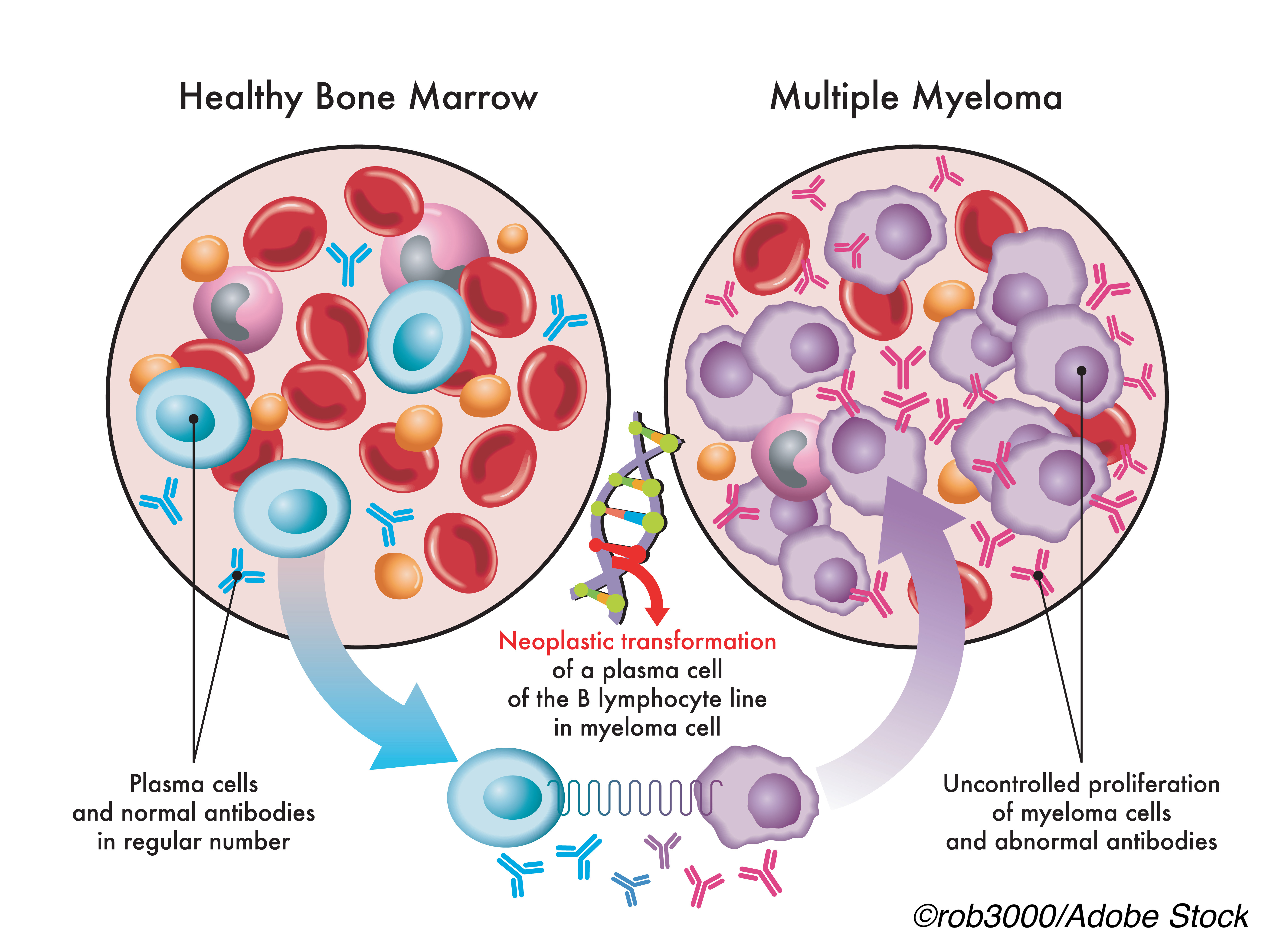
The FDA approved isatuximab-irfc (Sarclisa), in combination with carfilzomib and dexamethasone, to treat relapsed or refractory multiple myeloma (RRMM) in adults who have received one to three previous lines of therapy.
The triple therapy was approved based on results from the phase III IKEMA trial, according to a press release from isatuximab’s manufacturer. This marks the second FDA approval for isatuximab — the CD38-directed cytolytic antibody was originally approved in March 2020 in combination with pomalidomide and dexamethasone to treat adult MM patients who had received at least two prior lines of therapy, including lenalidomide and a proteasome inhibitor.
“In the phase III IKEMA study, the addition of [isatuximab] to carfilzomib and dexamethasone reduced risk of disease progression or death by 45%,” said Thomas G. Martin, MD, Associate Director, Myeloma Program, The University of California, San Francisco, Professor of Medicine, Adult Leukemia and Bone Marrow Transplantation Program, co-leader of the Hematopoietic Malignancies Program, Helen Diller Family Comprehensive Cancer Center, and co-author of the IKEMA study. “This approval is an important advancement for patients whose disease has relapsed and reinforces the potential for [isatuximab] to become a standard of care in relapsed or refractory multiple myeloma.”
In the randomized, multi-center, open label clinical trial, the study authors enrolled 302 patients with relapsed MM across 69 centers in 16 countries. The triple therapy reduced risk of disease progression or death by 45% (hazard ratio [HR] 0.548, 95% CI 0.366-0.822; P=0.0032) compared with standard-of-care carfilzomib/dexamethasone alone, the manufacturer explained. The complete response rate and very good partial response rate were 39.7% and 33%, respectively, with the triple therapy versus 27.6% and 28.5%, respectively, with carfilzomib/dexamethasone.
The most common adverse events for the triple therapy arm versus the control arm were upper respiratory tract infection (67% vs 57%), infusion-related reactions (46% vs 3.3%), fatigue (42% vs 32%), hypertension (37% vs 32%), diarrhea (36% vs 29%), pneumonia (36% vs 30%), dyspnea (29% vs 24%), bronchitis (24% vs 13%), and cough (23% vs 15%). Serious adverse reactions that occurred in more than 5% of patients on the triple therapy included pneumonia (25%) and upper respiratory tract infections (9%), and permanent discontinuation of treatment due to adverse events occurred in 8% of patients on the triple therapy — 2.8% discontinued due to infection.
Isatuximab’s prescribing information also carries warnings for infusion-related reactions, neutropenia, second primary malignancies, interference with serological, serum protein electrophoresis, and immunofixation tests, and embryo-fetal toxicity.
John McKenna, Associate Editor, BreakingMED™
Cat ID: 468
Topic ID: 78,468,730,468,192,725,925


